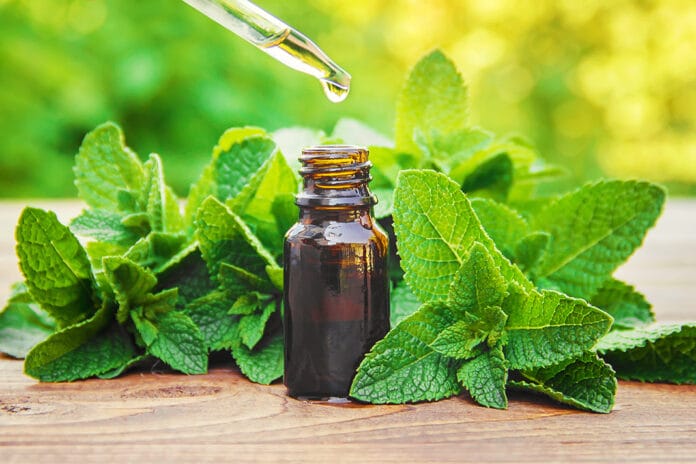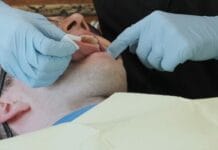Disclosure: This quiz is sponsored content from LISTERINE® as part of our sponsored partner program.
Test your essential oils mouthrinse knowledge with this quick quiz and then make sure to register for the LISTERINE® OFFICE ESSENTIALS® program for complimentary samples and patient educational resources. It’s completely free to join and available to all US licensed dental professionals!
Now onto the quiz…
Test your Essential Oils Mouthrinse Knowledge
Daily use of essential oils mouthrinses in conjunction with mechanical methods provides a greater reduction in plaque/biofilm than mechanical methods alone.
In a meta-analysis of 29 studies spanning the time period between 1980 to 2012, the authors found "clinically relevant benefits of daily use of essential oils mouthrinses for plaque and gingivitis reduction beyond mechanical method oral hygiene by determining the percentage of plaque-free tooth surfaces and gingival sites that achieved health, the goals of preventive services."
Araujo, M.W.B., Charles, C.A., Weinstein, R.B., McGuire, J.A., Parikh-Das, A.M., Du Q., Zhang, J., Berlin, J.A., Gunsolley, J.C. Meta-analysis of the effect of an essential oil-containing mouthrinse on gingivitis and plaque. J Am Dent Assoc. 2015 Aug; 146(8): 610-622. doi: 10.1016/j.adaj.2015.02.011. PMID: 26227646. Retrieved from https://jada.ada.org/article/S0002-8177(15)00336-0/fulltext
A mouthrinse with essential oils is a good alternative for patients that can't clean interdentally due to dexterity difficulties.
A randomized, controlled trial evaluating the efficacy of an essential oil mouthrinse on reduced plaque and interproximal gingivitis compared to flossing showed an 83.3% reduction in interproximal gingivitis with whole mouth rinsing and an 88.2% reduction with flossing. This result led the authors to conclude, "The use of an essential oils mouthrinse may be advised, as a compliment, for patients unable to floss effectively."
Luís, H.S., Luís, L.S., Bernardo, M., Dos Santos, N.R. Randomized controlled trial on mouth rinse and flossing efficacy on interproximal gingivitis and dental plaque. Int J Dent Hyg. 2018 May; 16(2): e73-e78. doi: 10.1111/idh.12307. Epub 2017 Aug 22. PMID: 28834178. Retrieved from https://pubmed.ncbi.nlm.nih.gov/28834178/
When applied to dental implant material, zirconium and titanium, essential oils resulted in immediate and ongoing antibacterial and antiplaque activities. The antibacterial effect was enhanced with plaque age.
An in vitro study evaluated the effects of essential oils (cinnamon oil and clove oil) on dental implant materials (titanium and zirconium) compared to CHX and Tween 80. As expected, Tween 80 showed no antimicrobial effects and was used as a control, while CHX was used as a positive control. The results showed, "Functionalization of different dental implant material surfaces with essential oils resulted in immediate and ongoing antibacterial and antiplaque activities, and this antibacterial effect was enhanced with increased plaque age."
Al-Radha, A.S., Younes, C., Diab, B.S., Jenkinson, H.F. Essential oils and zirconia dental implant materials. Int J Oral Maxillofac Implants. 2013 Nov-Dec; 28(6): 1497-505. doi: 10.11607/jomi.3142. PMID: 24278917. Retrieved from https://pubmed.ncbi.nlm.nih.gov/24278917/
Essential oils mouthrinses delay wound healing. Due to this, it should be avoided after periodontal surgery.
In a randomized controlled trial evaluating the effect of chlorhexidine and essential oils mouthrinse on oral wound healing after periodontal flap surgery, the results showed essential oils mouthrinses did not delay wound healing. Additionally, regarding clinical relevance, essential oils mouthrinse may be recommended as an alternative to chlorhexidine to reduce adverse events (such as tooth staining) while still providing antibacterial properties.
Katsaros, T., Mayer, E., Palaiologou, A., Romero-Bustillos, M., Evans, G.H., Lallier, T.E., Maney, P. Effect of different concentrations of commercially available mouthwashes on wound healing following periodontal surgery: a randomized controlled clinical trial. Clin Oral Investig. 2020 Oct; 24(10): 3587-3595. doi: 10.1007/s00784-020-03232-5. Epub 2020 Feb 19. PMID: 32076866. Retrieved from https://pubmed.ncbi.nlm.nih.gov/32076866/
Essential oils mouthrinse containing ethanol exerts no significant inhibitory effect on proliferation and migration of human gingival epithelial cells in an in vitro model.
In an in vitro study evaluating the effects of essential oil mouthrinses with ethanol, the results revealed no significant inhibitory effect on the proliferation and migration of human epithelial cells. In other studies, essential oils mouthrinse with ethanol used following periodontal surgery clearly showed reduced plaque and improved healing. Serious considerations should be made in regard to recommending an essential oils mouthrinse after periodontal therapy.
Yoshikawa, K., Sekino, J., Imamura, K., Ota, K., Kita, D., Saito, A. In vitro Effect of Mouthrinse Containing Essential Oils on Proliferation and Migration of Gingival Epithelial Cells. Phytother Res. 2016 Jul; 30(7): 1113-8. doi: 10.1002/ptr.5613. Epub 2016 Apr 5. PMID: 27059802. Retrieved from https://pubmed.ncbi.nlm.nih.gov/27059802/












